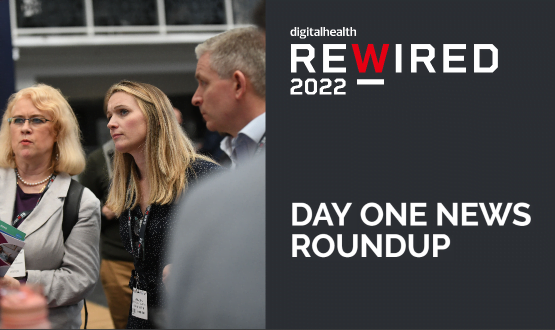Digital Health Rewired 2022: Day one news roundup

Digital Health Rewired returned with a bang in 2022 and there was certainly plenty to talk about.
One of the highlights from the morning session on day one was NHS Digital’s Simon Bolton, who stressed that organisations in the centre of the NHS must demonstrate leadership following a “gradual decline into chaos” over the last couple of years.
The organisation’s interim CEO also spoke about his three main points when it comes to the role of the centre. They were; focusing on the workforce, encouraging people from all kinds of communities to have a career in digital healthcare and providing support for shorter term skills problems.
Another key element to Rewired this year has been the Digital Nursing Summit which included a keynote from Ruth May, the chief nursing officer at NHS England.
Speaking for the first time at a Digital Health event, May said she’d like to see a chief nursing information officer (CNIO) in every organisation in order to help drive the digital agenda.
Among the themes up for debate during the morning included maintaining trust with the public as National Data Guardian (NDG) for Health and Social Care, Dr Nicola Byrne, said that data initiatives and organisations must ensure that they are able to demonstrate what they are doing with the information is ‘actually trustworthy’.
Digital transformation in practice
Then in the afternoon, there were sessions on digital transformation in practice. This included Andy Carruthers, CIO at University Hospitals of Leicester NHS Trust.
Carruthers spoke about the trust’s journey with its next generation EPR, emphasising how collaboration was crucial as well as usability. Looking ahead, Carruthers added that the trust is expecting to achieve HIMMS stage 5 by summer 2022 and then HIMMS stage 6 mid 2023.
Bias in artificial intelligence
Also taking place in the afternoon was a speech on the National Policy and Keynote Stage by David Newey, deputy CIO of The Royal Marsden NHS Foundation Trust, on biases in artificial intelligence (AI).
Newey explained the particular biases in healthcare, in relation to factors such as geographic location, socioeconomic status, age and education.
He then talked about the different types of biases in AI, including implicit bias, sampling bias and temporal bias, before providing some real-world examples at places like Amazon.



